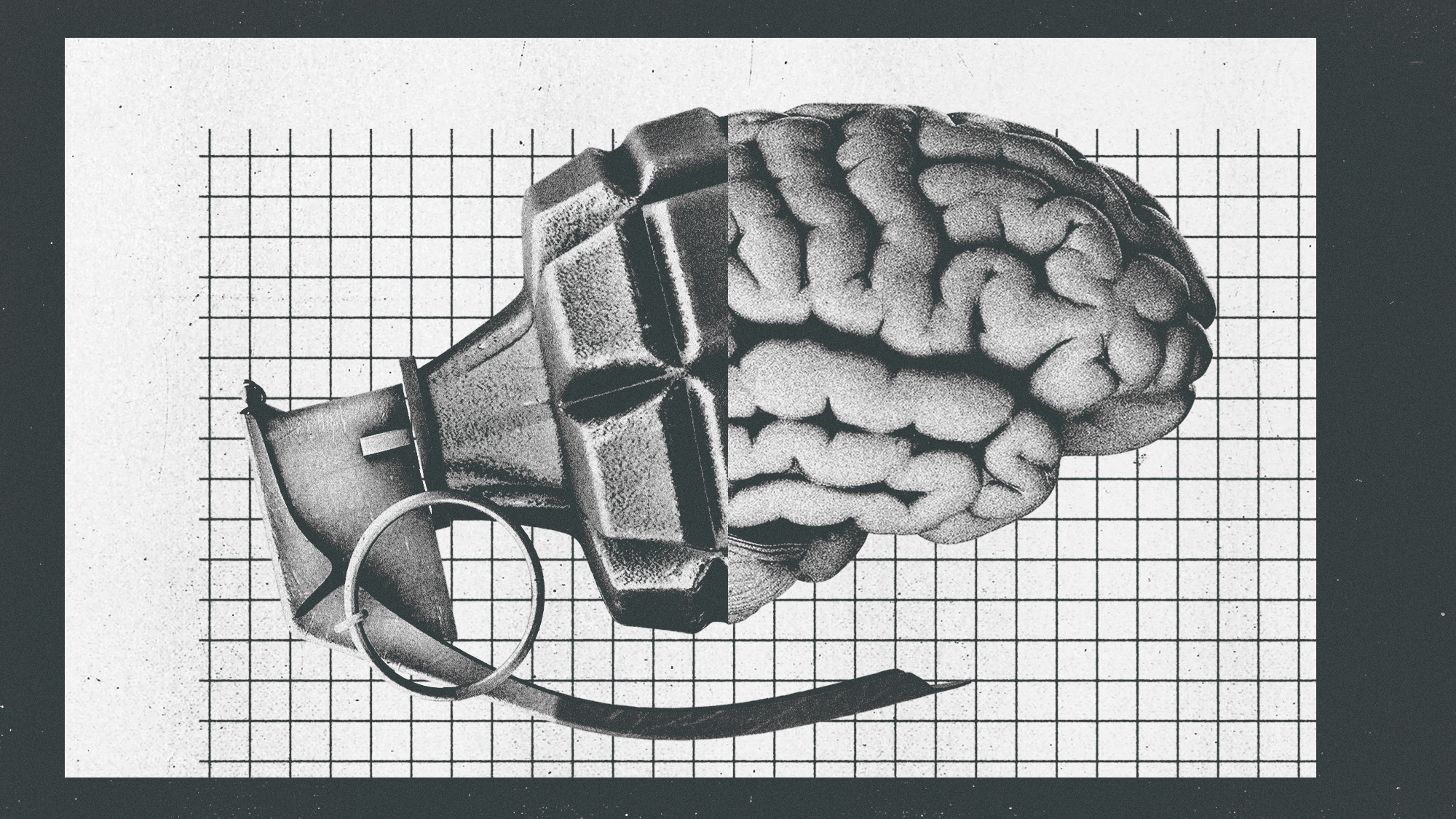Can dementia be defeated?
A new report identifies 14 risk factors


A free daily email with the biggest news stories of the day – and the best features from TheWeek.com
You are now subscribed
Your newsletter sign-up was successful
The fight against dementia is "accelerating," a leading researcher said to CNN. Dr. Gill Livingston led The Lancet Commission, which recently identified 14 risk factors which, properly addressed, "could prevent or delay nearly half" of the 55 million dementia cases identified in the world today. Among the factors: vision loss, high cholesterol, physical inactivity and obesity. "We can protect and help the brain," one expert said to the network, "and should!"
"Most of the reason why we get dementia is down to things we cannot control," said BBC News. Genes determine much of our risk. "But 45% of our risk can be changed" through lifestyle and policy choices. Good education early in life can reduce the risk; so can socializing with friends and family late in life. And red meat? Maybe lay off. With this information, researchers hope to head off, or at least delay, an expected rise to more than 150 million dementia cases by 2050. "Twelve years ago you would have said there's nothing you can do about dementia," said Livingston, "but that's really not the case."
What did the commentators say?
The number of dementia cases is "going to climb fast in the next decades as humanity ages," said The Economist. In aging countries like Japan, for example, dementia cases have risen dramatically in recent years, and Alzheimer's is now "the fifth-most important cause of death" in China. But the incidence rate of dementia among older people has declined in "rich Western countries" by an average of 13% per decade over the past 25 years. That's a sign that it works to address risk factors — and why risk reduction should "become a global policy priority."
The Week
Escape your echo chamber. Get the facts behind the news, plus analysis from multiple perspectives.

Sign up for The Week's Free Newsletters
From our morning news briefing to a weekly Good News Newsletter, get the best of The Week delivered directly to your inbox.
From our morning news briefing to a weekly Good News Newsletter, get the best of The Week delivered directly to your inbox.
It is time to phase out "the 'D' word,' Alzheimer’s patient and activist Mike Zuendel said at STAT. The word "dementia" is an "inaccurate, outdated and stigmatizing term" that makes older people less likely to seek diagnosis and treatment for their condition. There are many causes of cognitive impairment — Alzheimer's, depression or vascular conditions — and the antiquated descriptor "covers up these key differences with a single catch-all term." Changing how we talk about such conditions could lead to "earlier diagnosis, better care and improved lives."
What next?
Experts suggest that older people can help themselves by getting tested for vision and hearing loss, said The New York Times. "People who experience sensory loss in adulthood tend to withdraw and not engage as much socially" — and social isolation is a key risk factor for dementia. "The vision loss keeps you from going out to the party," said one expert. Hearing loss can mean "you go to the party but you sit in the corner and you don't talk to anybody."
Not every risk factor is easily addressed. In Japan, researchers have found "a troubling link between heat and dementia," said The Japan Times. Alzheimer's is the cause of roughly half the country's dementia cases, and researchers have determined that "heat stress is likely to worsen the condition." The problem? The planet is getting hotter: July was the 14th consecutive month of record temperatures. "It's clear that rising temperatures pose a significant threat to brain health," said one expert. The fight against dementia, then, is part and parcel with the fight against climate change.
A free daily email with the biggest news stories of the day – and the best features from TheWeek.com
Joel Mathis is a writer with 30 years of newspaper and online journalism experience. His work also regularly appears in National Geographic and The Kansas City Star. His awards include best online commentary at the Online News Association and (twice) at the City and Regional Magazine Association.
-
 Political cartoons for February 14
Political cartoons for February 14Cartoons Saturday's political cartoons include a Valentine's grift, Hillary on the hook, and more
-
 Tourangelle-style pork with prunes recipe
Tourangelle-style pork with prunes recipeThe Week Recommends This traditional, rustic dish is a French classic
-
 The Epstein files: glimpses of a deeply disturbing world
The Epstein files: glimpses of a deeply disturbing worldIn the Spotlight Trove of released documents paint a picture of depravity and privilege in which men hold the cards, and women are powerless or peripheral
-
 Growing a brain in the lab
Growing a brain in the labFeature It's a tiny version of a developing human cerebral cortex
-
 Mixed nuts: RFK Jr.’s new nutrition guidelines receive uneven reviews
Mixed nuts: RFK Jr.’s new nutrition guidelines receive uneven reviewsTalking Points The guidelines emphasize red meat and full-fat dairy
-
 Trump HHS slashes advised child vaccinations
Trump HHS slashes advised child vaccinationsSpeed Read In a widely condemned move, the CDC will now recommend that children get vaccinated against 11 communicable diseases, not 17
-
 The truth about vitamin supplements
The truth about vitamin supplementsThe Explainer UK industry worth £559 million but scientific evidence of health benefits is ‘complicated’
-
 Health: Will Kennedy dismantle U.S. immunization policy?
Health: Will Kennedy dismantle U.S. immunization policy?Feature ‘America’s vaccine playbook is being rewritten by people who don’t believe in them’
-
 Stopping GLP-1s raises complicated questions for pregnancy
Stopping GLP-1s raises complicated questions for pregnancyThe Explainer Stopping the medication could be risky during pregnancy, but there is more to the story to be uncovered
-
 Choline: the ‘under-appreciated’ nutrient
Choline: the ‘under-appreciated’ nutrientThe Explainer Studies link choline levels to accelerated ageing, anxiety, memory function and more
-
 How music can help recovery from surgery
How music can help recovery from surgeryUnder The Radar A ‘few gentle notes’ can make a difference to the body during medical procedures
